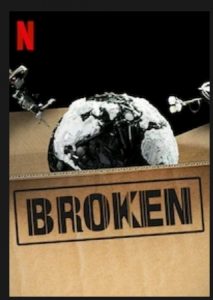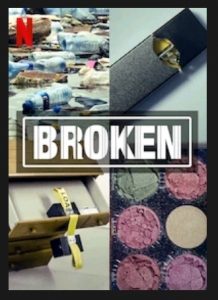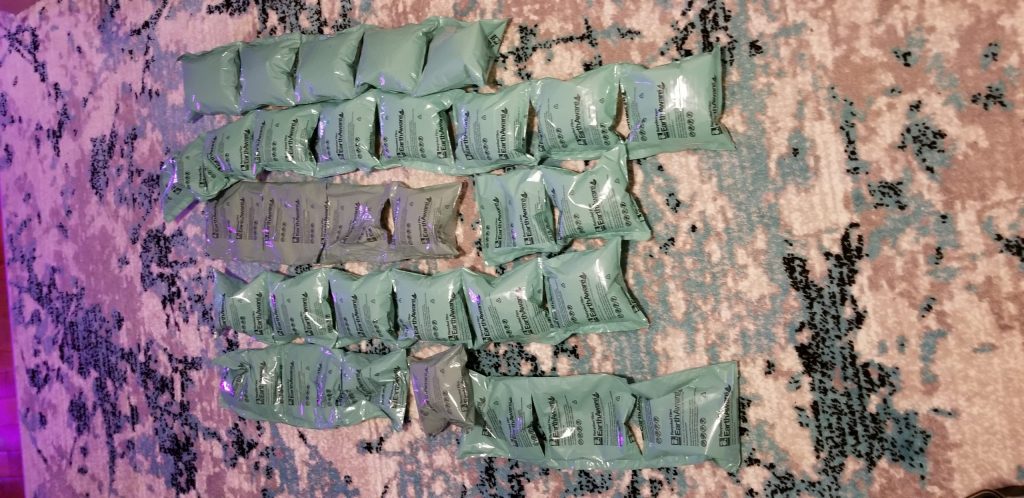
MORE THAN I BARGAINED FOR
If you’ve been following along, then you know that I like to shop in store whenever possible. “Why?” you ask. To reduce my carbon footprint and plastic consumption of course. However, when Christmas shopping, I tend to take advantage of the Black Friday sales on Amazon, meaning there is no option to pick up in store. And in some cases, even when shopping at stores that offer in store pick up, shipping seems to be a less expensive option, which is odd.
This year, the very next day, I received two of the many boxes containing some of the items I ordered. In just these two boxes alone, I got more than I bargained for. There was a ton of plastic air pouches. While these are better than styrofoam peanuts and are made of recycled plastic, it is still unwanted plastic waste. Since I take my own reusable totes with me when I go shopping, I’ve significantly cut down on the number of plastic bags I have in my house. So you can imagine how displeased I was to get more than I bargained for with all of this plastic in my packages. And there was surely tons more on the way with the rest of my orders.
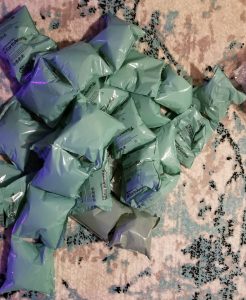
EarthAware
Recycled Film
“Contains at least 95% Pre-consumer recycled material.”
“So what do you do with it all?” you may ask. In the past, the first thought would be to pop the air pouches and throw them in the trash. But now that I have been making a conscious effort to do my part, that simply won’t do. Instead, I popped them all, folded them up and put them aside until my next shopping trip.
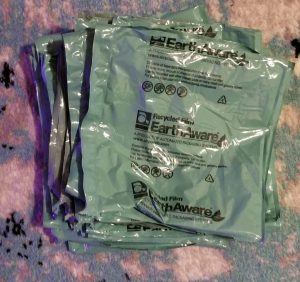
Deflated and consolidated.
The shopping center near me that houses both the supermarket and Target, among other stores, also has lots of recycling options. For instance, the supermarket provides machines to recycle plastic and glass bottles or soda cans. You know, the ones that give you 5¢ for each bottle or can, unless you live in Cali, where you get 10¢. Target also has a set of these machines. But in addition to this, there are bins for recycling things that shouldn’t be thrown in the trash, like batteries and, you guessed it, plastic bags. So I made sure to pack up all of this unwanted plastic and drop if off in the bin to be recycled once again.
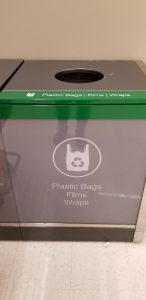

Dropping off at the Plastic Bags/Films/Wraps recycling bin
I haven’t really seen these bins anywhere else, so they may or may not be available or easily found in your area. But I would suggest you do some research to find one that is accessible. There is lots of great information available on the Plastic Film Recycling website. The link provided offers information on what should be dropped off in these bins. I’ve tried their Drop-Off Directory, but it just seems to get lost in an endless loop of Retrieving Results. I hope it’s just a temporary glitch as this would be really useful. But there is also an email address where you can get help with the directory.
Aside from recycling, I know that there are lots of crafty people out there that upcycle their plastic bags by making totes or even crocheted plastic clothes. I’d love to hear what other alternatives you guys use to dispose of unwanted plastic waste.
